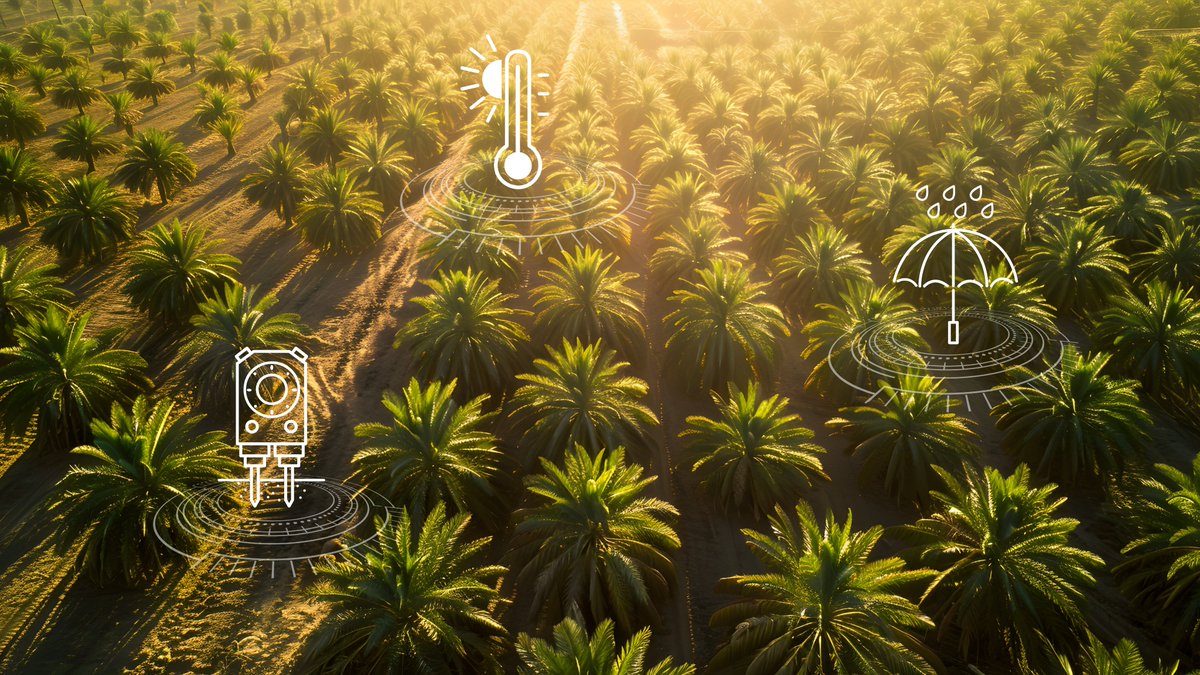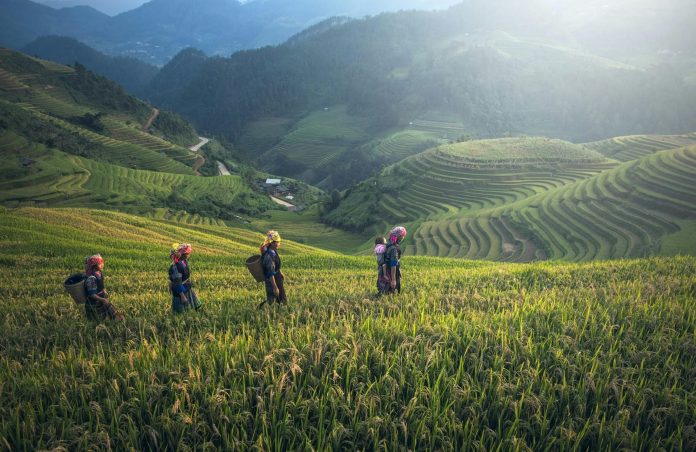THE EDITOR – In the heart of Malaysia’s 490,000-hectare oil palm plantations, a revolution is taking place. Autonomous drones weave through trees, blockchain sensors monitor soil nutrients, and AI analyzes hyperlocal weather data. This is the breakthrough collaboration between Farmsent, DroneDash, and SkyX – a blueprint for a future of agriculture that is efficient, sustainable and globally engaged.
Malaysia’s decision was published by Forbes on June 8, 2025, which stated that the neighboring country had succeeded in changing the paradigm in the agricultural sector as land was used as a living commodity through a tokenization sensor system.
An Experiment that Brings Change
The article says that Farmsent is presenting a blockchain-based soil sensor that monitors nitrogen, phosphorus, and potassium in real-time on farmland in Malaysia.
Not only guiding the precision fertilization, the data is also tokenized as a digital asset. With that, global investors can buy “stock” in the sensor through Web3 – a model that transforms small farmers into part of the global digital economy.
In the experiment, DroneDash technology was also proven to be able to cut costs. It is done by setting up a fleet of drones to spray pesticides and fertilizers with centimeter accuracy so that it can reduce the use of chemicals by up to 50%. This efficiency is not just a number because it can be used to save river and soil ecosystems from pollution.
THE CLIMATE ALSO BECOMES AN ASSET BECAUSE THE WEATHER IS TOKENIZED
Another company, SkyX, completes the Malaysian sky puzzle with a hyperlocal weather station. Temperature, humidity, and air pressure are recorded and encrypted on the peaq blockchain. This data uniquely becomes an investment asset – opening up opportunities for global participation in agricultural climate resilience.
This way, the AI system not only processes real-time data, but learns from each season. As explained by Yog Shrusti (Founder of Farmsent): “We are not only optimizing today’s harvest, but building a sustainable food system for future generations.”
WHAT ABOUT INDONESIA? POTENTIAL OF 1,500 TRILLION WAITS FOR THE TOUCH OF AGRO-SYNERGY
While Malaysia leads in palm oil plantations, Indonesia still holds greater power with 17 million hectares of productive agricultural land that has the potential to be tokenized with a value of up to IDR 1,500 trillion. This is where Agro-Synergy (a collaboration between IRWATA and FarmSent) will come as an answer.

This tokenization will free farmers in West Java and other cities from being entangled in debt through a tokenization system for vegetable or rice fields. 120 hectares of land can be used to attract funding of IDR 18 billion in 3 months – without bank collateral with a land and productivity tokenization scheme. This scheme empowers farmers as owners of digital assets, not laborers on their own land.
AI DRONES CAN BE SAVIORS FOR FARMERS’ NEGLECTED HARVESTS
The prevention function can also be carried out by drones from FarmSent in the Agro-Synergy program to detect brown planthopper attacks 14 days earlier. This technology can save 40% of the harvest that is usually lost. The same technology is now being prepared for 100,000 hectares of oil palm land in Indonesia as an initial trial.
For this reason, Indonesia still has the opportunity to become a leader in the Global Agritech business beyond Malaysia. Why is that? Because Indonesia has potential that Malaysia and other countries do not have, including:
1. Land Scale: 17 million hectares vs. Malaysia’s 490,000 hectares – 34x greater economic potential.
2. Farmer Regeneration: 27% of Agro-Synergy users are millennial farmers – a digitally literate generation.
3. Sharia Model: Profit-sharing (muzara’ah) based tokenization becomes a magnet for Middle Eastern investors.
Mochammad Sabdo Yusmintiarto as Chairman of IRWATA emphasized that his party is ready to pursue Malaysia and put Indonesia as the center of global agritech.
“We are not only pursuing Malaysia, but positioning Indonesia as the epicenter of global agritech. Every hectare of tokenized land is an invitation for the world to invest in a sustainable food future,” he said.
Sabdo said that his party had prepared the 2026 Agro-Synergy Roadmap agenda since 2024, including digitizing 200,000 hectares of pioneer land in 2024, blockchain carbon certification for green exports in 2025 and launching Agro-DAO – a collective decision of token holders in 2026.
LEARNING FROM MALAYSIA
Malaysia’s success reminds Indonesia of two critical things, namely the Ministry of Agriculture and the Commodity Futures Trading Regulatory Agency (Bappebti) must immediately accelerate the regulatory sandbox that supports the digital economy in the food sector.
In addition, it is time to open training through technology that is friendly to every citizen such as WhatsApp by distributing the Agro-Synergy module which can be used as a key to overcoming the digital divide.
In the global agritech map, what Malaysia is doing is a spark. But in Indonesia, with 47 million farmers and land the size of Europe, Agro-Synergy has the potential to ignite the fire of revolution. As Paul Yam (CEO DroneDash) said that Decentralized technology is not just a concept, but a real solution that creates value for communities and investors.
Now, the ball is in Indonesia’s court: to be a spectator or a leader?




